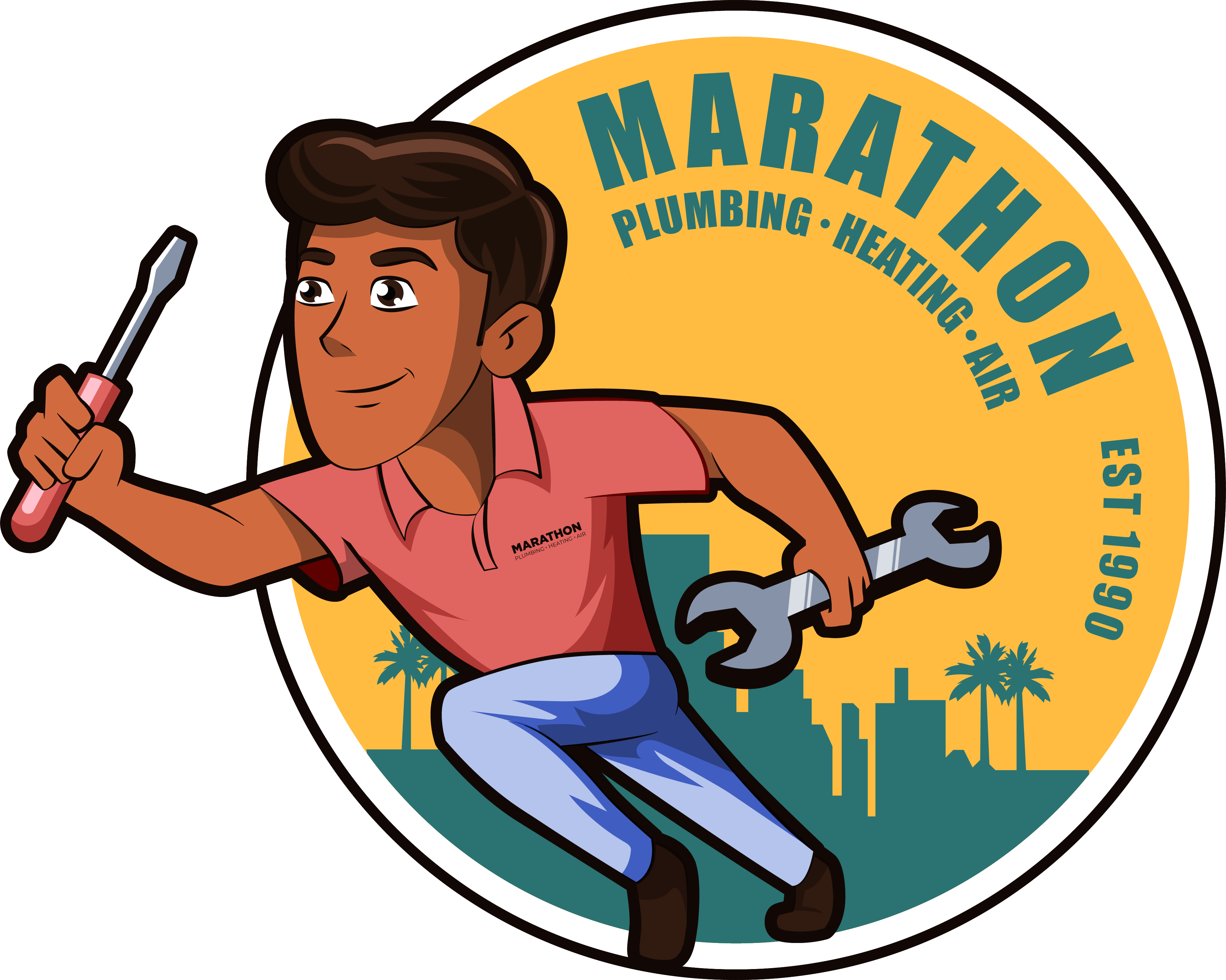Navigating the complex world of heating, ventilation, and air conditioning (HVAC) systems can be a challenge, especially with the numerous misconceptions and myths that circulate around this essential home infrastructure. These myths, if believed, can lead homeowners to make ill-informed decisions, resulting in inefficient energy usage, unwanted expenses, and sub-optimal indoor comfort.
From the supposed cost-effectiveness of constantly running your HVAC system to the idea that bigger always means better, these myths run rampant, often leaving consumers baffled and misguided. But fear not, as we’re here to clear the air. Drawing upon the wisdom of our HVAC professionals, Marathon HVAC Services, LLC. will debunk common misconceptions, providing you with a roadmap for efficient energy use, improved system longevity, and overall cost savings.
1. Myth: Bigger HVAC Units Are Always Better
One common misconception is that larger HVAC units will always provide better performance and comfort. While it’s essential to have a properly sized system, an oversized unit can lead to various issues, such as short cycling, increased energy consumption, and uneven indoor temperatures.
An HVAC system must be appropriately sized based on your home’s square footage, insulation, and other factors to perform efficiently and effectively. Always consult with an HVAC professional to determine the ideal system size for your home.
2. Myth: Closing Vents in Unused Rooms Saves Energy
Many homeowners believe that closing vents in unused rooms will save energy by directing airflow only to occupied areas. However, modern HVAC systems are designed to efficiently distribute air throughout your home regardless of individual vent settings.
Closing vents can disrupt this balance, potentially causing increased strain on your system and reducing overall efficiency. Instead, consider adjusting your thermostat settings, utilizing zoning solutions, or properly insulating and weatherizing your home to optimize energy savings.
3. Myth: Regular Filter Changes Aren't Necessary
Some may underestimate the importance of regularly changing the air filter in their HVAC system. A clean air filter is essential for maintaining indoor air quality and system efficiency. A dirty filter can restrict airflow, forcing your system to work harder and consume more energy to maintain a comfortable temperature.
Additionally, neglecting filter changes can lead to increased allergens and pollutants circulating in your home. Follow the manufacturer’s recommendations regarding filter replacement frequency, typically every 30 to 90 days, depending on the filter type and usage.
4. Myth: Turning Your Thermostat Way Up or Down Will Heat or Cool Your Home Faster
A misconception regarding temperature control is that setting the thermostat significantly higher or lower than the desired temperature will speed up the heating or cooling process. However, your HVAC system works at a consistent rate to reach the set temperature, regardless of how far away the desired temperature may be.
Drastically changing the thermostat setting may only lead to increased energy consumption and discomfort, as well as the likelihood of experiencing temperature overshoot. To maintain a comfortable and energy-efficient environment, avoid extreme thermostat adjustments.
5. Myth: Your HVAC System Doesn't Need Regular Maintenance
The belief that your HVAC system can consistently perform without regular maintenance can result in long-term issues and reduced efficiency. Proper maintenance, including annual inspections, cleaning, filter replacement, and timely repairs, is essential to ensure your HVAC system operates at its peak performance.
Neglecting regular maintenance can lead to decreased efficiency, increased energy costs, and a reduced system lifespan—schedule routine maintenance with a trusted HVAC professional to protect your investment and optimize your system’s performance.
6. Myth: Crank Up the Heat if You're Cold or the AC if You're Warm
Contrary to popular belief, it’s wise to make small thermostat adjustments to achieve the desired comfort level in your home. Incremental temperature changes of 1 to 2 degrees Fahrenheit can often result in noticeable improvements in comfort without significantly increasing your energy usage. Making gradual adjustments also helps maintain a more consistent indoor temperature, placing less strain on your HVAC system and allowing for more efficient operation.
7. Myth: Windows and Doors Are the Biggest Source of Energy Loss
While windows and doors can be significant sources of energy loss, they’re not the only culprits. Inadequate insulation and air leaks in walls, ceilings, and floors can contribute to reduced energy efficiency and comfort. To optimize your home’s efficiency and minimize energy loss, ensure your home is properly insulated and sealed. This may involve upgrading insulation, sealing air leaks, and improving overall weatherization.
8. Myth: Ceiling Fans Only Serve a Purpose in the Summer Months
Many people believe that ceiling fans are only useful for cooling a room during hot summer days. However, ceiling fans can aid in maintaining home comfort year-round by improving air circulation.
In the winter, running your fan in a clockwise direction at a low speed can push warm air near the ceiling down into the room, helping to maintain a more even temperature. Conversely, in the summer, a counterclockwise fan movement will generate a cooling effect, supporting your air conditioning system and making the room feel more comfortable.
Stay Informed and Maximize Your HVAC Performance
Overall, these expert insights have shed light on the importance of understanding how your HVAC system truly works, as opposed to relying on pervasive myths. By separating fact from fiction, homeowners can make informed decisions that result in optimal heating and cooling, improved energy efficiency, and considerable cost savings.
Rely on our expert team at Marathon HVAC Services, LLC. to guide you in selecting, maintaining, and operating your heating, air conditioning, and repair services in Los Angeles. Contact us today to discuss your HVAC needs, and let us help you maximize the effectiveness of your heating and cooling systems!

 Book Now
Book Now





 Menu
Menu